Here at The National Archives, we are asked questions covering a huge range of research topics. Sitting behind our enquiries desk, it can be quite daunting as members of the public approach in the expectation that we will be able to offer advice on anything from the dissolution of the monasteries to the miners’ strike. There’s no way that any member of staff can have a detailed knowledge of our entire collection, but what we do know is that the best place to start with most enquiries is by looking for a research guide.
We have around 350 research guides that can all be accessed on our website, whether you’re at home or on site here in Kew. The guides explain what records we have and point you to useful sources outside our own collection. There are links to digitised collections of records, tips on how to search our catalogue, and information about what you might expect to find in the records.
So how can you find the right guide to help with your own research? You need to start by finding the Help with your research page. You can do this from our home page, or by clicking on the red menu button at the top of any page on our website and then clicking on ‘Help with your research’.

Click on ‘Help with your research’ on the home page

Click on the red menu button on any page and then on ‘Help with your research’
Once you are on the right page you will see 12 research guide categories, each with its own image. From here you have four ways to look for a specific research guide. You can use:
- the subject categories
- the A-Z index
- the text search box
- the full list of research guides
Let’s look at each of these options.
Using the subject categories
Click on a subject category image to see what guides are available.
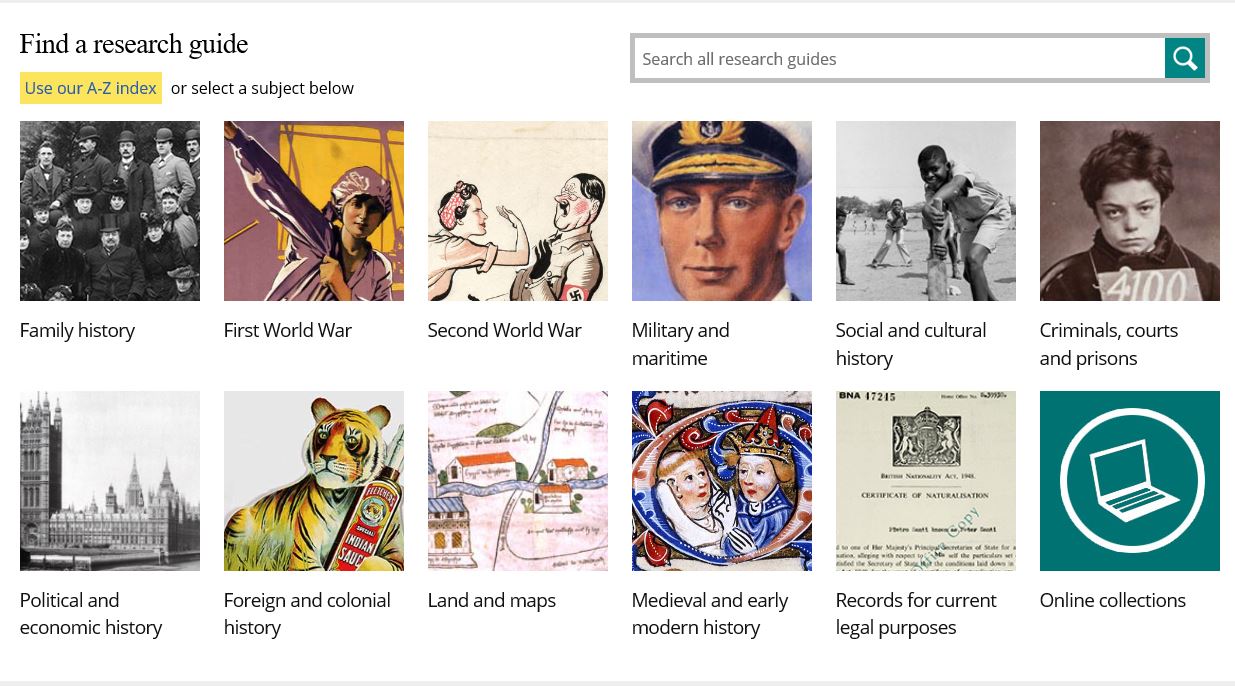
Research guide subject categories
Once you’ve chosen a category you can use the ‘refine’ options to narrow down the selection of guides. For example, if you click on the family history category, you can narrow down the number of research guides on offer by choosing from a range of 18 sub-categories from ‘Army and militia’ to ‘Wills, inheritance and land ownership’.
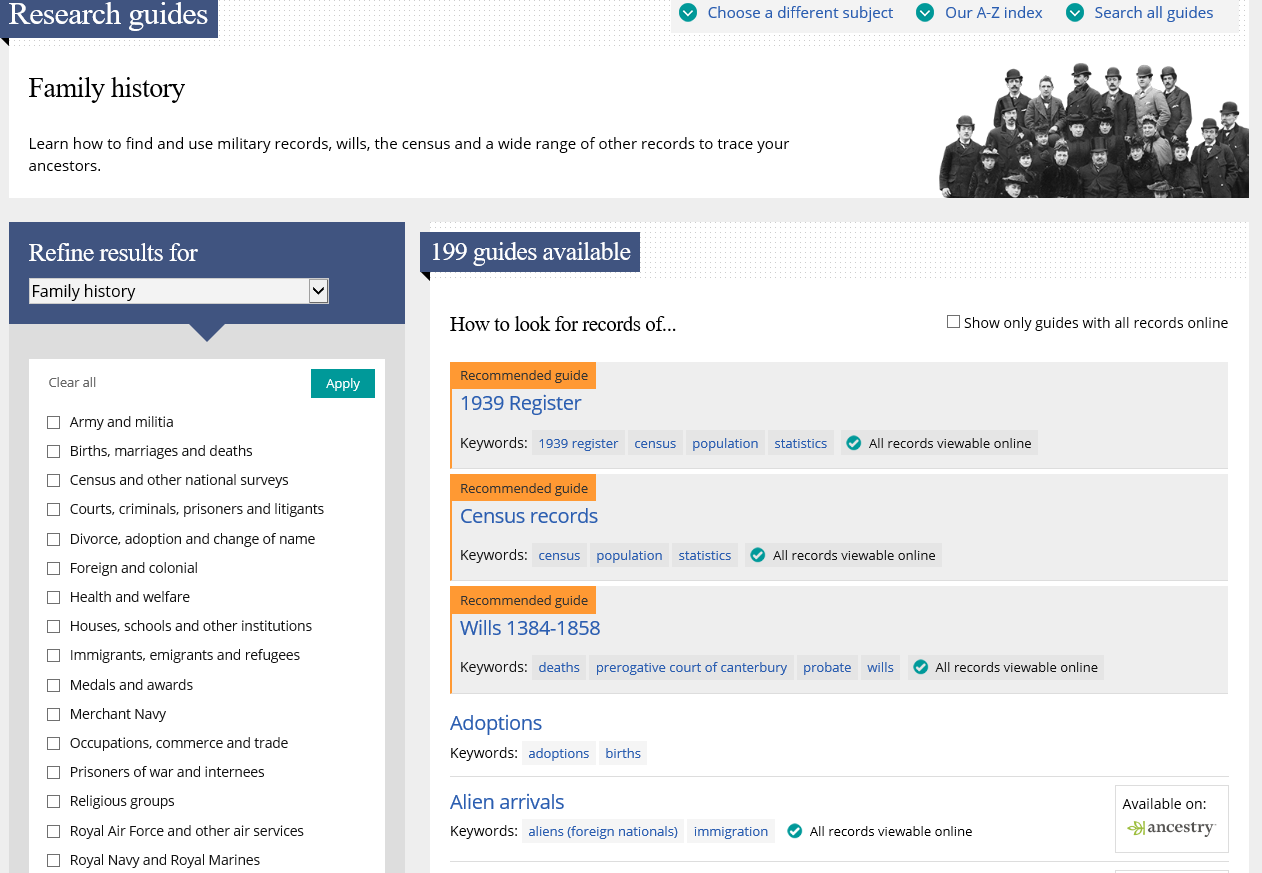
Family history category with options to refine list
You will see three recommended guides highlighted with an orange flag to make them easy to find; the rest are listed alphabetically.
Click on the blue title (not the keywords) to open up the guide and read the research advice on that subject.
Click on the keywords to find guides that share common themes.
Using the A-Z index
Click on ‘Use our A-Z index’ which is highlighted in yellow just above the images for the 12 categories.

Research guides A-Z index option
Next, choose the relevant letter for your topic. Let’s say you’re looking for records relating to art – click on the letter A to see the various research guide titles open up.
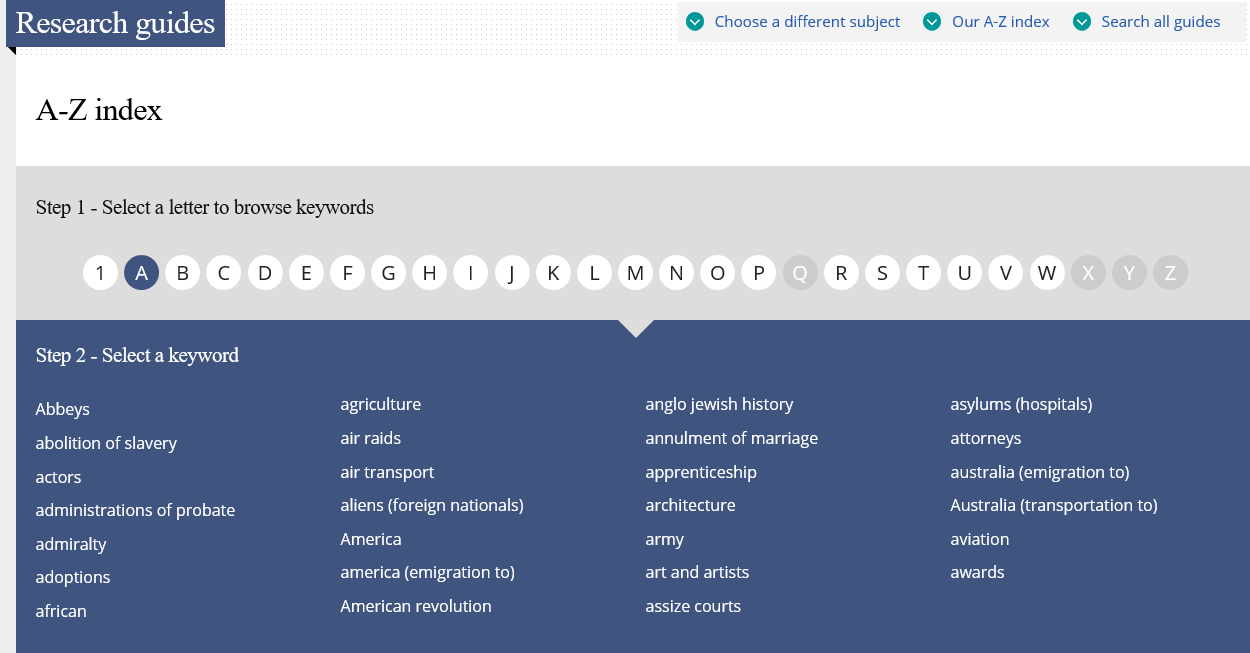
Research guides under A in the index
Now you can browse the list for mention of art. On the image here you will see ‘art and artists’ near the bottom of the third column, but the layout will vary depending on the device you’re using. Clicking on any word in the list will open up research guides that cover this topic – sometimes there’s just one guide, but often there are more. Clicking on ‘army’ brings up 33 guides, for example.
Searching by keyword
Enter a word in the search box to search the content of all the guides for that word.

Text search box for research guides
For example, if you want to see what research guides there are that cover medals, you can type ‘medal’ into the search box. This will bring up a list of all the research guides that include the word medal.
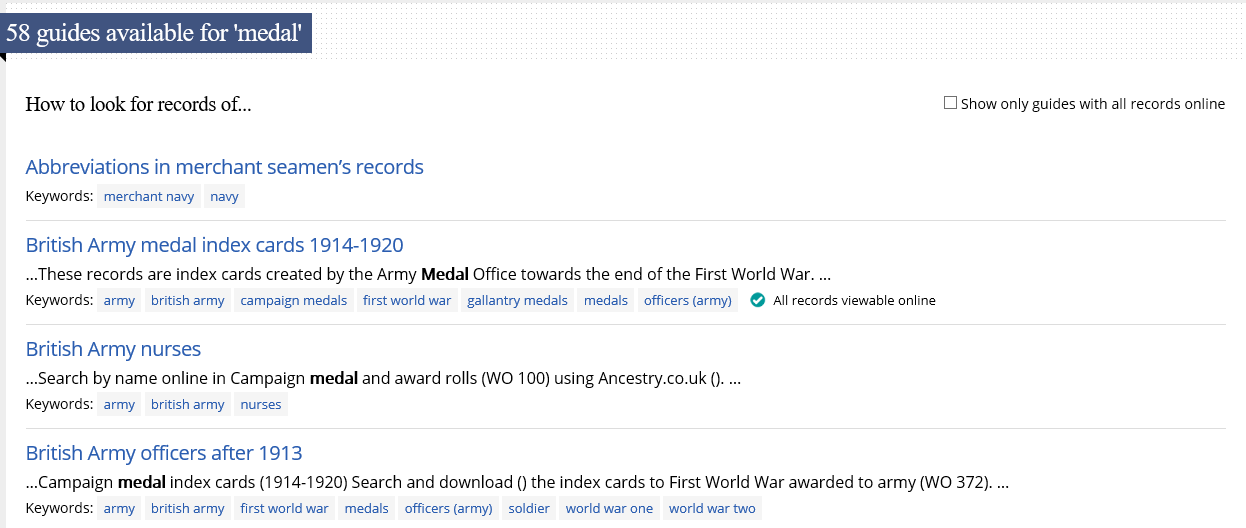
List of guides including the word ‘medal’
Some guides that come up in your list of results might not be entirely relevant – but you can see the excerpts from the guides below the titles, which will give you an idea of the relevance of each guide.
Full list of research guides
One final tip for finding the right research guide – once you have clicked on either a category image, the A-Z, or used the search box, you will see the option to choose a different subject.

Option to choose a different subject
If you click on this, you will be able to pick ‘all research guides’, which will take you to an alphabetical list of all the guides. Another way to get to this option is to click on a category and then use the drop down ‘refine’ menu. Click on the arrow to open up the menu and the top option is ‘All research guides A-Z’
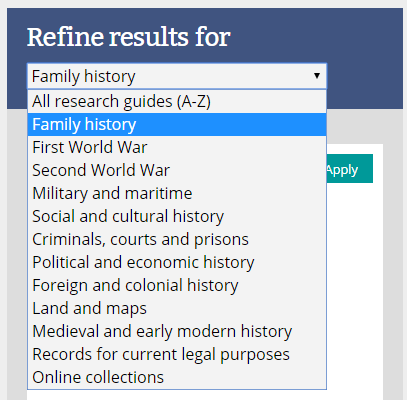
A-Z of all research guides option
I hope this helps you make a start on your research, and perhaps opens your mind to some other possibilities once you see the many topics that the research guides cover. If you’re still struggling to find what you want after trying the research guides, you might find it helpful to read my blog post ‘Why can’t I find what I’m looking for?’ Also, look out for my next post, coming soon, which will be called ‘Your catalogue’s rubbish!’

There is a distinct lack of research guides and some are out of date. In my view you should start with just entering a term into the catalogue and you are likely to find what you want. What researchers do need is for staff to know the basics of history and records and there are lots of records and are not always in English.
An interesting series of articles and I am looking forward to the next one.
I too have had some issues with the (lack of) knowledge of staff with abrupt and rude staff on info desk insisting records (aircrew casualty reports) were at Kew when they were/are still with MOD.
However this is more than offset by the help afforded by those in the Reading Rooms who seems to go out of their way to help.
Returning to aircrew casualty reports ; is there a publicly-accessible plan for releasing these files that can be consulted?
Hi Richard,
Thanks for your comment.
We can’t answer research requests on the blog, but if you go to our ‘contact us’ page at http://nationalarchives.gov.uk/contact/ you’ll see how to get in touch with our record experts by email, live chat or phone.
Best of luck with your research.
Kind regards,
Liz.
[…] Where do I start my research? by Sarah Castagnetti on The National Archives Blog. […]